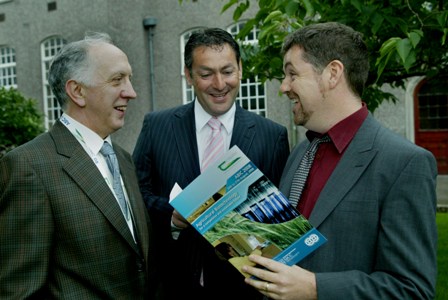2008 Press Releases
26.08.2008
The ABIC conference which opened at UCC last weekend, reflects Ireland’s National Strategy for Science, Technology & Innovation (SSTI) (2006-2013) whose aim is to use biotechnologies to facilitate innovations across the Irish agri-food sector, according to UCC’s Dr Charles Spillane, local organiser of the conference.
This conference, organized jointly by Teagasc and UCC is highlighting the broad range of sectors in which agricultural biotechnologies are now having an impact. The ABIC programme is highlighting biotechnology advances across the agriculture, food, plant, animal, marine and pharma sectors. The conference covers both GM and non-GM agricultural biotechnologies.
The background context to the conference is one where food prices are increasing, energy supplies are uncertain, and global warming is now a political priority. Agriculture and food production research will be a key component for how we deal with these issues. Within the agricultural research arena, green biotechnology will have an important role to play.
The UN World Food Summit indicates that food production must increase by almost 40% by 2020 (just 12 years time) to meet demand. The World Bank indicates that one hectare of land will need to feed 5 people in 2025 compared to just 2 people in 1960. Increases in productivity per hectare are urgent. That is, we will need to grow more food on less land.
Already at the conference,
Dr Spillane said: “If both the research to allow food production increases, and the policies to ensure equitable access to food are not addressed in parallel over the coming decades, food shortages will increasingly contribute to political instability. However, such productivity increases represent a phenomenal challenge for agricultural research, as they need to be achieved in parallel with reducing the environmental footprint of agriculture. The rapid advances in agricultural biotechnology research that are now occurring indicate that biotechnology, including the science of genetics, will have an important role to play in delivering these productivity increases. ”
Picture: (L - R) Professor Jimmy Burke, Teagasc and ABIC 2008 Chairperson; Mr Billy Kelleher, TD Minister of State at the Department of Enterprise, Trade and Employment; and Dr Charles Spillane, Head of the Genetics & Biotechnology Lab at UCC, local organiser of the ABIC 2008 Programme Committee.

